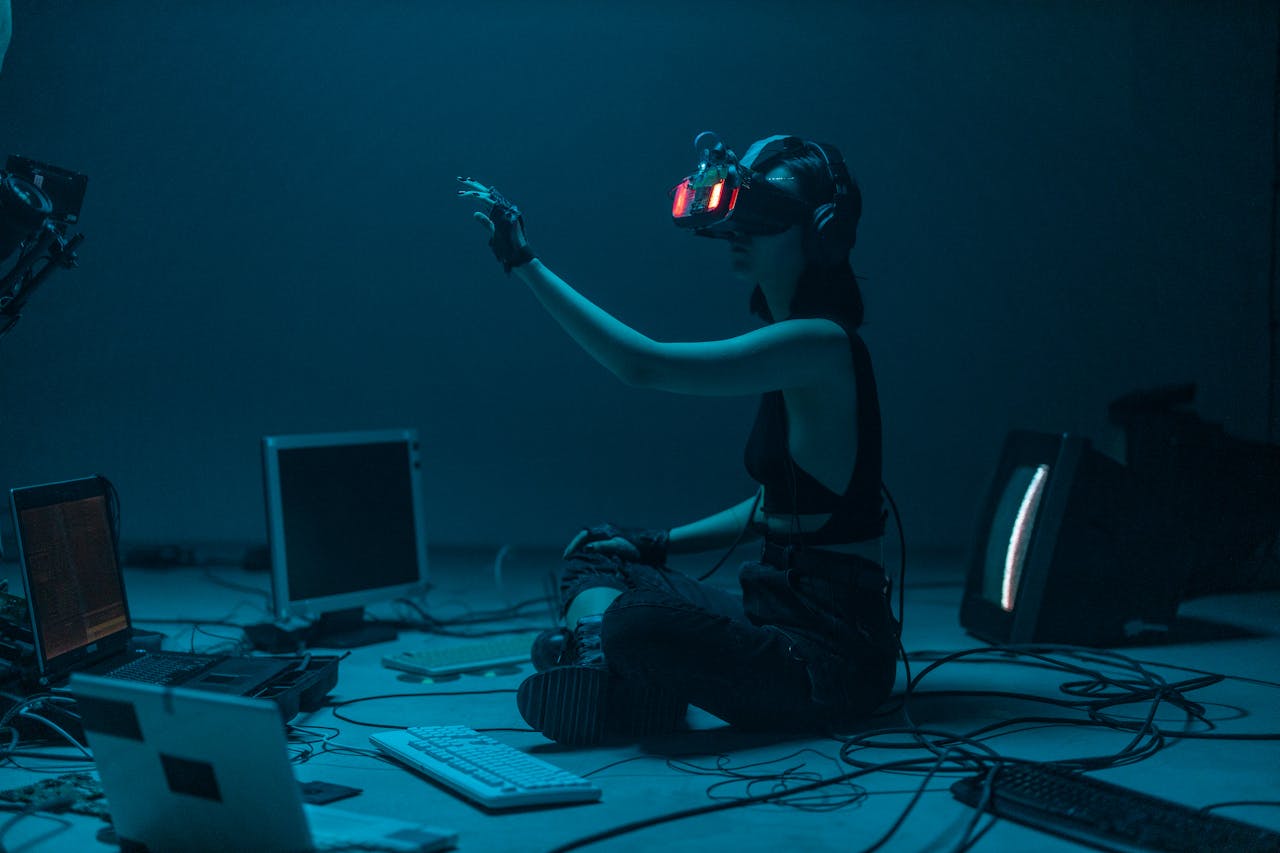AI Companions
In an era where technology permeates every aspect of our lives, it’s no surprise that it has found its way into our most personal spaces—our relationships and AI Companions. The emergence of artificial intelligence (AI) companions has sparked a revolution in how we perceive and experience intimacy. These digital entities, once confined to the realm of science fiction, are now becoming a tangible reality, challenging our notions of companionship and emotional connection.
As you navigate this brave new world of artificial intimacy, you might find yourself wondering: How exactly are these AI partners reshaping the landscape of human relationships? What draws people to form bonds with non-human entities? And perhaps most importantly, what are the implications of this technological shift for society at large? Let’s start the discussion.
The Nature of AI Companions
At their core, AI companions are sophisticated programs designed to simulate human-like interactions. For example, getting a Foxy AI girlfriend allows you to access exciting content and communicate with your online partner at any time and anywhere.
Platforms that provide this service use utilize natural language processing, machine learning, and physical embodiments. This helps to create an experience that feels remarkably authentic. From AI chatbots that engage in witty banter to more advanced systems that remember your preferences and adapt to your emotional state, the features of these virtual companions are vast and continually expanding.
Their Appeal and Potential Benefits
It’s crucial to recognize the inherent need for human connections to understand the allure of AI companions. Unfortunately, the world can sometimes feel isolating, the dating process can be complex, and traditional relationships are fraught with challenges.
That’s why the idea of an irresistibly hot and always-available virtual girlfriend like Abigail Ratchford holds undeniable appeal. Some people find that hooking up with digital companions is devoid of the baggage that human relationships inevitably carry.
Others might find that AI companions serve as a safe space to gain emotional intelligence or find comfort in times of loneliness. It’s like having a confidant who’s always ready to listen and offer emotional support. Your virtual companions will never grow tired of your stories, and they’re programmed to make you happy and fulfill your needs.
Criticisms and Ethical Concerns
However, the rise of AI companions isn’t without controversy. Critics argue that these relationships, no matter how sophisticated, can never truly replace human-to-human connections. There’s a concern that relying too heavily on artificial partners might lead to a decline in social skills or an inability to navigate the complexities of real-world relationships. After all, human connections, with all their messiness and unpredictability, offer a depth of experience that even the most advanced AI may struggle to replicate.
Yet, proponents of AI companionship argue that these digital relationships need not replace human ones entirely. Instead, they can serve as a complement, filling emotional gaps and providing support in ways that might not always be available from human sources. For individuals with social anxiety or disabilities or those living in isolated areas, AI companions can offer a valuable lifeline of interaction and emotional support.
Broader Societal Implications
Outside of romantic relationships, the potential applications of AI companionship are extensive, especially in healthcare. AI companions are being developed to assist in mental health treatment, providing round-the-clock support for individuals struggling with depression, anxiety, or other psychological challenges. In eldercare, digital and robot companions offer support and cognitive stimulation to seniors, potentially alleviating feelings of loneliness and isolation.
Practical Considerations for Exploring AI Relationships
As you consider the implications of this technological shift, it’s essential to recognize the ethical considerations at play. For example:
Will It Offer Peace of Mind?
The development of AI companions raises questions about data privacy, consent, and the potential for emotional manipulation. How much of yourself are you really sharing when you open up to an AI? And how do we ensure that these systems have the user’s best interests in mind?
Does It Support Your Core Values?
There’s the philosophical question of what constitutes a “real” relationship. As AI companions become more sophisticated, blurring the lines between artificial and authentic interactions, we’re forced to confront our definitions of love, companionship, and emotional connection. Is a bond formed with an AI any less valid than one formed with a human if it provides genuine comfort and support?
For those of you curious about exploring this new frontier of relationships, it’s essential to approach with both openness and caution. While AI companions can offer unique benefits, it’s crucial to maintain a balanced perspective.
These digital entities should complement, not replace, human connections. Continue cultivating a diverse network of relationships, both digital and human, for a richer and more fulfilling emotional life. Go out, meet new friends, and visit adult entertainment shows if these make you happy.
The Future of Relationships and Intimacy?
As AI technology continues to evolve, the journey from fantasy to reality for AI companions has been swift. Despite being around only for a few years, we’re already seeing a slight shift in how humans approach relationships and emotional connections. Whether you view this development with excitement or apprehension, there’s no denying its potential to reshape our social landscape.
However, it’s crucial to take a step back and understand their potential impacts and limitations. In doing so, you get to decide how to incorporate these technologies into your life, if at all. As you navigate this changing world, remain curious and stay informed. Above all else, reflect on what truly matters in your relationships—whether they’re with humans, AIs, or a combination of both.

Here are five FAQs about AI companions and their impact on intimate relationships:
- What is an AI companion, and how do they work?
AI companions are virtual or robotic entities designed to simulate companionship, conversation, and sometimes even romantic interactions. They use artificial intelligence to learn from user interactions, adapting responses to become more personalized and engaging over time. - Can AI companions replace human relationships?
While AI companions can provide companionship, they lack the depth, empathy, and mutual emotional connection found in human relationships. They can, however, offer emotional support and may be a helpful supplement for people seeking companionship or managing loneliness. - How can AI companions impact existing relationships?
For some, AI companions can enhance relationships by serving as a safe space to express thoughts and explore emotional needs. However, in some cases, they may create distance or jealousy if one partner relies too heavily on AI for emotional support instead of communicating with their human partner. - Do AI companions promote healthier emotional well-being?
AI companions can help some people manage loneliness, anxiety, and depression by providing nonjudgmental interaction. However, the impact on well-being varies, as excessive reliance on AI may hinder real-life social skills and human connections. - Is it safe to form attachments with AI companions?
Forming attachments with AI can offer emotional support, but setting boundaries is essential. Overattachment may lead to unrealistic expectations or disappointment in human interactions, as AI companions are ultimately programmed responses without genuine emotional depth.

Read from our Guest Bloggers articles. Authors submit original articles on sexual lifestyle, health, and wellness to rick.xsales@gmail.com for posting.








Leave a Reply